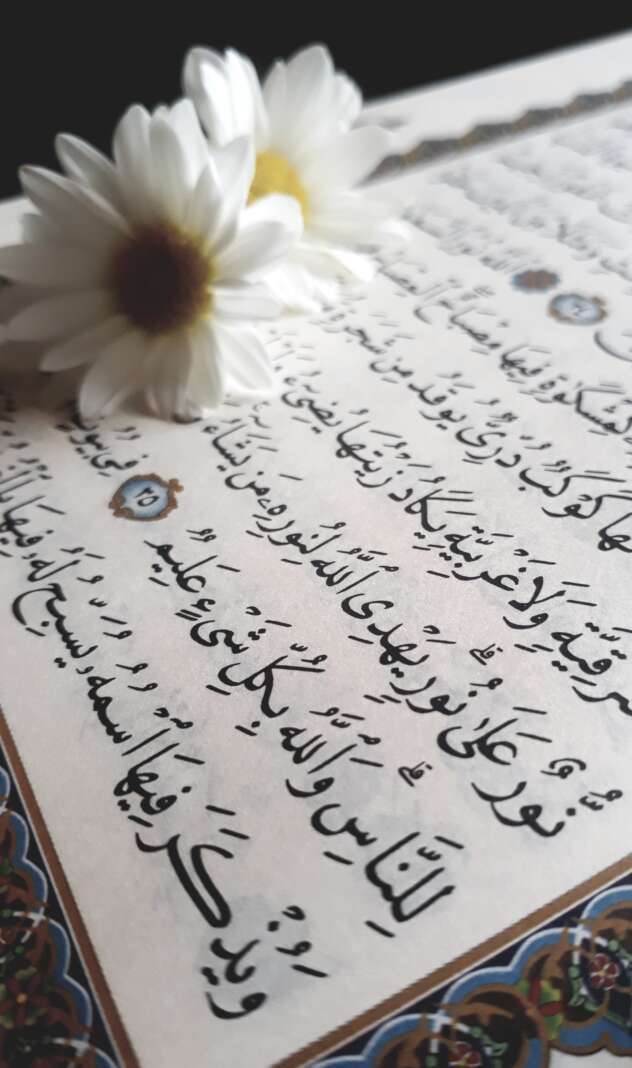مشروع (أبو الدرداء لحفظ القرآن الكريم):
حلقات الأترجّة:
وتهدف الى تحفيظ القرآن الكريم بطريقة التلقي والمشافهة والأخذ مباشرة من فم الشيخ المتقن على طريقة نظام الكتاتيب الذي اشتهر منذ بداية تاريخنا الإسلامي.
فإنّنا إذا ما رجعنا إلى تاريخنا الإسلامي نجد أنّ الرسول صلى الله عليه وسلم كان المعلّم الأوّل لأصحابه، يحثّهم على طلب العلم ويُقرِئُهم القرآن الكريم، ثمّ كان يُقرِئُ بعضُهم بعضًا، ويحثُّ كلَّ واحدٍ منهم على تعلّم القراءة والكتابة
وقد استمرّ التعليمُ بالكتاتيب مدى الأزمنة والعصور في كلّ المجتمعات الإسلاميَّةِ خاصّةً في البوادي والقرى، فهذه الكتاتيبُ مع بساطتها وضيقِ مساحتِها -عادةً- إلاّ أنّ لها دورًا مهمًّا في محو الأميّة وربط المتعلّمين بكتاب الله، وتنوير عقولهم وصقل ألسنتهم منذ الصغر، وممّن اشتهروا في تاريخنا الإسلامي بالتعليم في الكتاتيب التابعيُّ المقرئُ أبو عبد الرحمن السُّلَمِيُّ الكوفيُّ ،وقيسُ بن سعدٍ، وعطاءُ بن رباحٍ والكُمّيت الشاعر، وعبد الحميد كاتب بني أميّة، والإمام الزهريّ والأعمش والحجاج بن يوسف الثقفيّ، وأسد بن الفرات فاتح صقليّة، وغيرهم كثير، ومنهم من كان يعلّم الصبيان أوّل النهار والبنات في آخره.
The Utrojah hifdh program aims to produce memorisers of the Qur’an through the process of talaqee and mushafahah. This is a system in which student's memorise directly from the mouth of a proficient sheikh, in the manner of the Katateeb system, which has been famous since the beginning of our Islamic history.

If we go back in our Islamic history, we find that the Prophet ﷺ was the first teacher of his companions, encouraging them to seek knowledge and teaching them Quranic recitation. The sahabah RA would recite the Qur’an upon the Prophet ﷺ and upon one another. The sahabah RA were also encouraged to learn how to read and write.If we go back in our Islamic history, we find that the Prophet ﷺ was the first teacher of his companions, encouraging them to seek knowledge and teaching them Quranic recitation. The sahabah RA would recite the Qur’an upon the Prophet ﷺ and upon one another. The sahabah RA were also encouraged to learn how to read and write.
Learning through the Katateeb system continued throughout the various eras of Islam and across varying regions and societies, especially in the deserts and villages.
These Katateeb, despite their simplicity and narrow spaces, have had an integral role in eradicating illiteracy and connecting the learners to the Book of Allah SWT while at the same time, enlightening their minds and sharpening their tongues from childhood.
From those who were famous in our Islamic history for teaching through the Katateeb system was the Tabi’ee and the Muqri Abu Abd al-Rahman al-Salami al-Kufi as well as Qais ibn Saad, and Atta Ibn Rabah and al-Kumayt the poet, and Abd al-Hamid the writer of the Umayyads. As well as al-Imam al-Zuhri, al-A’mash, al-Hajjaj ibn Yusuf al-Thaqafi, Asad ibn al-Furat (the conqueror of Sicily), and many others. From amongst them were also those who taught boys at the beginning of the day and girls at the end of the day.
المنهج
تبدأ بسورة البقرة مع متشبهاتها ثم تستمر الى باقي السور الطوال أو على إتمام المصحف الشريف وذلك بالاتفاق الدّوريّ بين المعلمة والطالبات والهيئة الإدارية.
نصاب الحفظ:
للمبتدئات: وجه واحد تلقينا -
للمتقدمات: وجه واحد تلقينا ووجه تكليفا وتسميعا -
Hifdh Method
The teacher recites the ayaat and the students repeat (through the method of talqeen), while using the process of
1. (البناء) building up gradually and
2. (الربط) forming connections.
The Curriculum
Starting from Surat al-Baqarah with its Mutashaabihaat (متشابهات) - verses/words that are similar in other places in the mus'haf and can cause confusion - and then continuing on to other long surah's or until the completion of the complete mus'haf.
This will be specified periodically based on consultation and agreement between the teacher, students and management.
The Amount of Hifdh
Beginners: 1 page through talqeen with the teacher
Advanced: 1 page through talqeen with the teacher and 1 page independently
Course Expectations
Pre-requisites: the successful completion of advanced 2 (old stream), or Introductory 2 (new stream) or its equivalent
Classes: A once a week group class for 3 hours.
Note: attendance is crucial because the program involves learning directly from the mouth of the sheikh
Assessments: Hifdh is revised in every class and an assessment is conducted at the completion of every Juzz and Surah
Frequently Asked Questions
It depends on the students pace and consistency in the program
Due to the nature of the hifdh course, it does not align with the term holidays. When holidays are assigned, it will be through a consultation between the teacher and students at the end of Surah's or end of a Juzz', depending on the need.
When it comes to the end of year holidays, it will be dependent on how much has been accomplished as well as on the strength of the hifdh and its revision. Holidays would still require the student to do revision.
The cost of this course is $200 per semester. It is paid twice a year